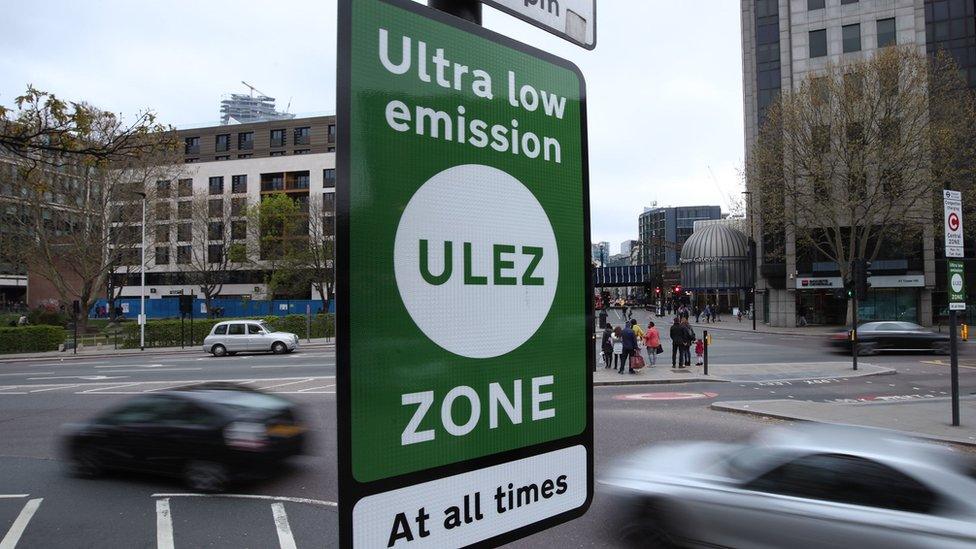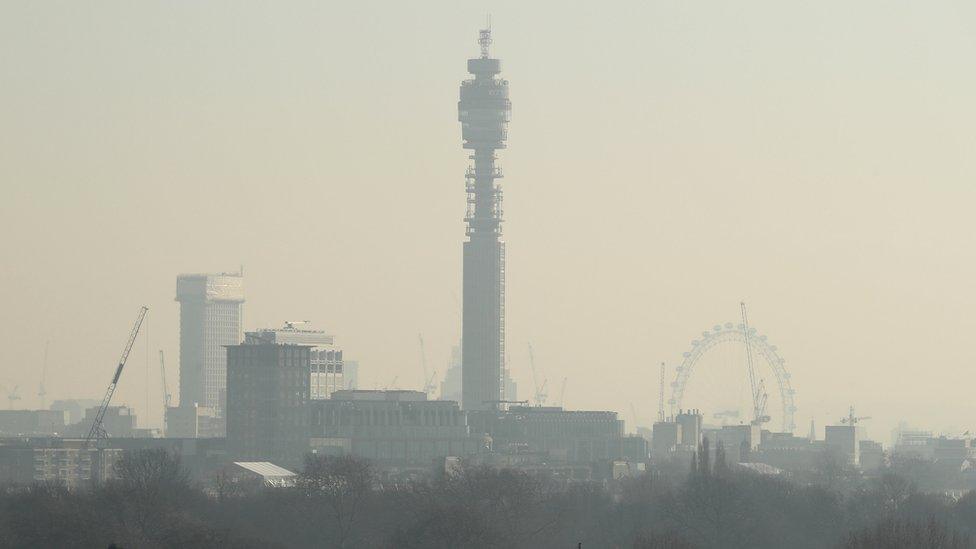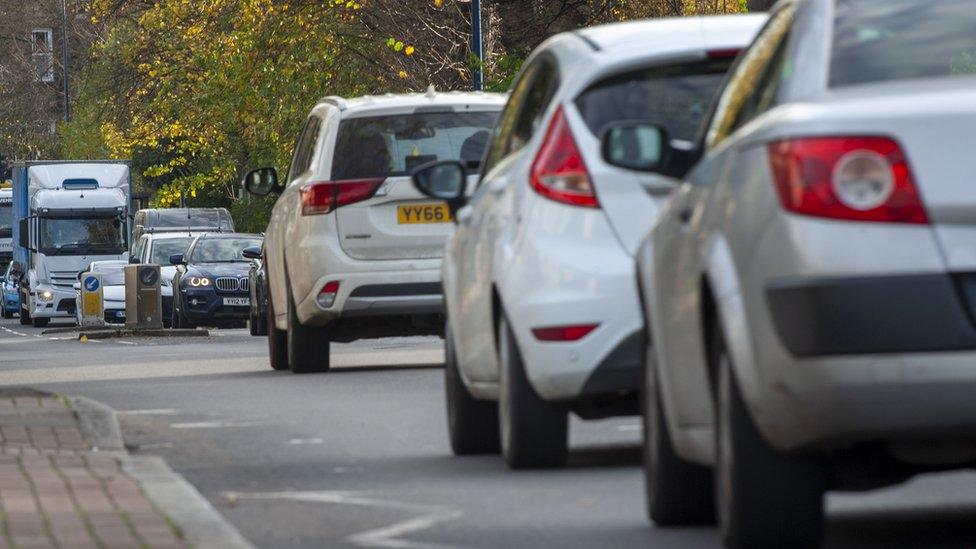ULEZ expanded zone has had limited impact so far, TfL report says
- Published

Thousands of vehicles a day were expected to be affected by the expanded charging, which came in to place in October
The expansion of London's Ultra Low Emission Zone (ULEZ) has had limited impact on pollution in the new areas, a report says.
Transport for London (TfL) found no change in levels of pollutants since ULEZ expanded to the North and South Circular roads in October 2021.
But roadside nitrogen dioxide levels in the expanded zone had dropped by 43% since 2017, the report said., external
London's mayor said ULEZ's expansion was making an "incredible difference".
Sadiq Khan said: "I'm proud of the progress we have made in making our city's air cleaner for millions of Londoners.
"We must now capitalise on this success, which is why I'm consulting on expanding the ULEZ London-wide to extend the benefits of clean air to all Londoners."
The Greater London Authority (GLA) is consulting on expanding ULEZ to cover most of the capital by 2023.

The darker colour shows the original Central London zone before it was expanded further to within the North and South Circular roads
Drivers of the most polluting cars have been charged a levy to drive into central London since 2017.
The scheme was known as the Toxicity Charge when it was first introduced.
The daily levy is now set at £12.50 to drive within the North and South Circular roads.
In the first six months of the expanded area, the levels of nitrogen dioxide and PM2.5, tiny particles which can lodge in the lungs and even pass into the bloodstream, have remained constant in both the Central and Inner London ULEZ zones, the report says.
The original Central London zone roughly covers the City of Westminster, City of London and the area around Waterloo, while the new Inner London zone surrounds this area and includes the 14 boroughs located largely inside the North and South Circular.
Since its introduction in 2017, the Central London zone has seen a 29% drop in levels of PM2.5, while Inner London has seen a 16% drop in PM2.5 during the same period.
During these years, there have been fuel shortages, coronavirus lockdowns and a cost-of-living crisis. As such, TfL said it was "difficult to definitively attribute changes in emissions and concentrations to the impacts of the ULEZ".
Other figures within the TfL report showed 94% of vehicles entering the ULEZ were compliant with the emissions rules.
This means there are fewer older, more polluting vehicles in the zone on an average day.

About six million people aged over 65 in England are at high risk of lung damage and asthma attacks because of toxic air, according to the British Lung Foundation
Nick Rogers, the Conservative transport spokesman on the London Assembly, said money for the scheme, championed by the Labour mayor, could be "better spent elsewhere".
"The case for further expansion, which means spending £200m more of Londoners' money on extending Sadiq Khan's camera network, is very wobbly," he said.
Health impact
The Green Party's Zack Polanski, chair of the London Assembly Environment Committee, said: "Yet again, we have high pollution alerts and warnings in the city.
"Coupled with this, we are experiencing extreme heat conditions. People fear going outside and this is wholly unacceptable.
"Any reduction whatsoever in harmful pollution levels helps the grave situation we face."
Dr Gary Fuller, air pollution scientist from Imperial College London, said: "We often hear that air pollution is a problem that is just too hard to solve but it's one that has a serious impact on everyone's health, which we cannot ignore.
"These new results from the expanded ULEZ show what can be done. But there is more to do.
"The sources of air pollution are also the sources of climate-heating emissions. This week's hot temperatures and summer smog clearly show the need to take actions on both air pollution and climate change together."

Follow BBC London on Facebook, external, Twitter , externaland Instagram, external. Send your story ideas to hellobbclondon@bbc.co.uk, external
- Published11 February 2021

- Published19 October 2021
